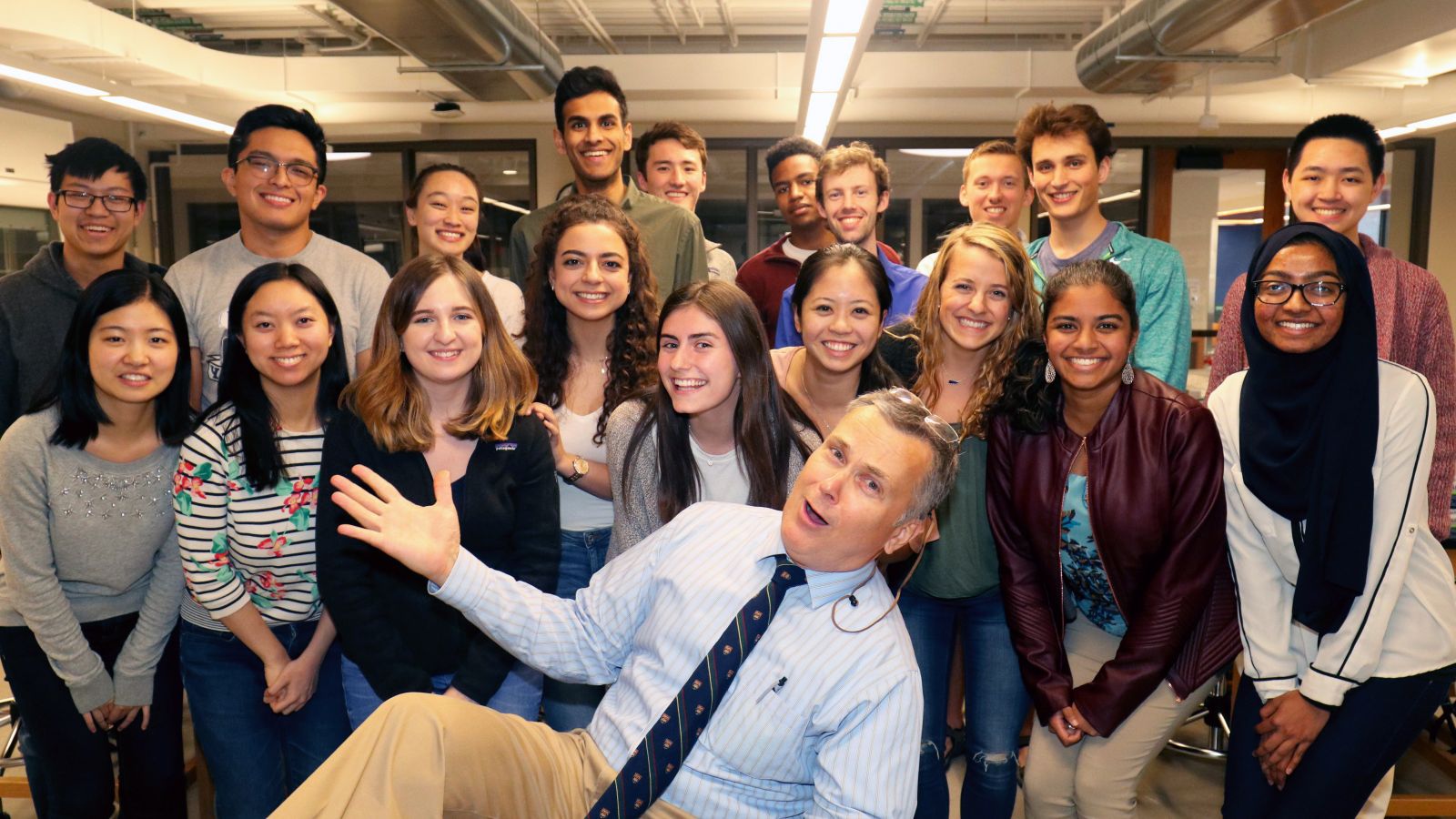Teaching Excellence at Yale
Student collaboration promotes social and academic literacy
Joseph Wolenski, Senior Lecturer and Research Scientist in Molecular, Cellular and Developmental Biology, integrates student collaboration, seminars and critical thinking into his laboratory courses MCDB 344L “Experimental Techniques in Cellular Biology” and MCDB 345L “Experimental Strategies in Cellular Biology.” These courses accept 18 students and are designed to maximize the collaborative realities of biomedical research. As Wolenski says, “I want my students to realize that in graduate school and as academic scientists, they will need the ability to work with people with unique areas of expertise in order to solve problems.”

Wolenski’s approach differs from typical lab experiences by avoiding competition between students. Rather, he fosters an environment where students compete to design and solve scientific problems while working in a collaborative environment. Wolenski communicates in the syllabus and in class that their success, as in a research laboratory, depends largely on teamwork and critical thinking, while sharing clear measures that connect group interaction to experimental results. He assesses social learning and teamwork by frequently revising the seating assignments to promote more student interactions. Assessment also includes student participation, seminar presentations and enthusiasm for research. Wolenski’s students love his approach, praising how the “small lab setting” provides an “encouraging learning environment” while demanding academic and professional excellence.
This environment replicates lab dynamics by asking students “to help one another develop skills and fill knowledge gaps.” The courses meet twice each week for ~five hours per class. To maximize time efficiency in the lab, students regularly share skillsets at the lab bench and collaborate using acquired methodologies with others. The courses showcase what Wolenski calls “the bedrock of science,” i.e. a collaborative spirit that promotes effective peer review throughout the process. This approach includes Socratic questioning on methods during class and 5 minute “chalk talks” where students describe a concept for class and field questions.
Wolenski expects his students “to demonstrate that they can practice science with people they’ve never met,” while providing an environment that encourages patience and welcomes failure. Through these approaches, students explore cellular biology while practicing vital academic skills and discovering the benefits of learning through collaboration.
Research and resources exploring the effectiveness of student collaboration in the classroom:
Alexa Lamm, Evaluation Specialist and Associate Professor at the University of Florida, et. al explore ways of organizing student groups by different problem- solving strategies, and the benefits of collaborative work for interdependent social skills. Read the study “The Influence of Cognitive Diversity on Group Problem Solving Strategy” in the Journal of Agricultural Education.
Angela Taipa, faculty in Chemical and Biological Engineering at MIT Portugal, et. al present a lab experiment whose balance of collaborative and independent learning promoted cooperation and content mastery. Read the study “Student Collaboration in a Series of Integrated Experiments To Study Enzyme Reactor Modeling with Immobilized Cell-Based Invertase” in the Journal of Chemical Education.
Kristy Wilson, Assistant Professor of Biology at Marian University, et. al provide a research-based resource guide on effective group work in the classroom. Read “Evidence-Based Teaching Guides: Group Work” in CBE Life Sciences.
Yale’s Poorvu Center offers a webpage resource exploring theory, examples, and recommended practices for engaging students in collaborative classroom learning.
Share with us or a colleague:
View or download a PDF version below. Send us your feedback and suggestions. To opt-out/opt-in to this newsletter, please visit Yale’s messaging service website and follow the on-screen instructions (see instructions in the sidebar above).
